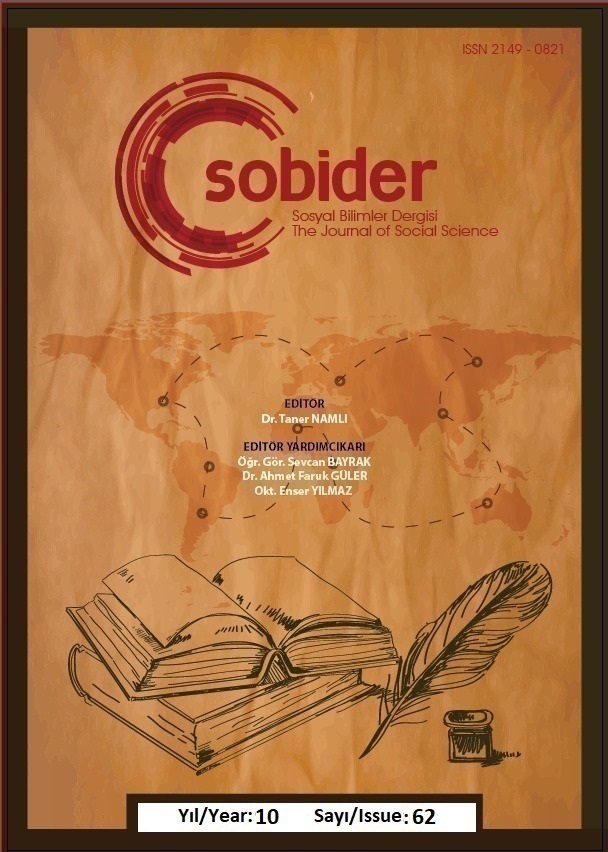Author :
Abstract
Bu çalışma, Hedda Gabler (1890) adlı tiyatro oyunundaki diyalogları Janet Holmes'un Özür Stratejisi (1990) bağlamında incelemeyi amaçlamaktadır. Bu çalışmada karakterler arasındaki saldırının türü ve ağırlığı, özür dileyen kişinin kullandığı özür stratejisinin kategorisi, saldırıya maruz kalan karakterin verdiği tepki türü ve özür dileyen ile mağduriyete uğramış karakterin cinsiyeti incelenmiştir. Ayrıca erkek ve kadın karakterler tarafından kullanılan özür stratejilerinin dağılım oranı ve özür dileme nedenleri de ele alınmıştır. Kadın ve erkek karakterlerin özür dileme stratejisinde herhangi bir farklılık veya benzerlik olup olmadığını göstermek için konu ile ilgili özür içeren diyaloglar seçilmiştir. Özür dilemek muhatabın olumsuz yüzüne hitap eder ve özür dilemek, gerçekleştirilen saldırının bir telafisi olarak görülür. Buna göre, özür stratejisiyle çok yakından ilişkili olan Goffman'ın dilbilimsel yüz terimi, Brown ve Levinson'ın Nezaket Teorisi ve Culpeper'ın Kabalık Stratejisi de oyundaki özür içeren diyalogların analizinde ele alınmıştır.
Keywords
Abstract
This study aims to analyse Janet Holmes’ Apology Strategy (1990) in the dramatic extracts from Hedda Gabler (1890). This study deals with the type and weight of offence occurring between the characters, the category of the apology strategy employed by the apologiser, the kind of apology responses given by the offended character and the gender of the apologiser and the offended character in their speech events. It also examines the distributional proportion of the apology categories adopted by the male and female characters and their motivation to apologise. The extracts with the apology have been selected to demonstrate if there is any difference or similarity in the apology strategy adopted by the female and male characters. Offering an apology appeals to the addressee’s negative face and functions as a remedy for the offence. Accordingly, Goffman’s linguistic term face, Brown and Levinson’s Politeness Theory and Culpeper’s Impoliteness Strategy, all of which are closely related to the apology strategy, will also be dealt with in the analysis of the remedial exchanges in the play.
